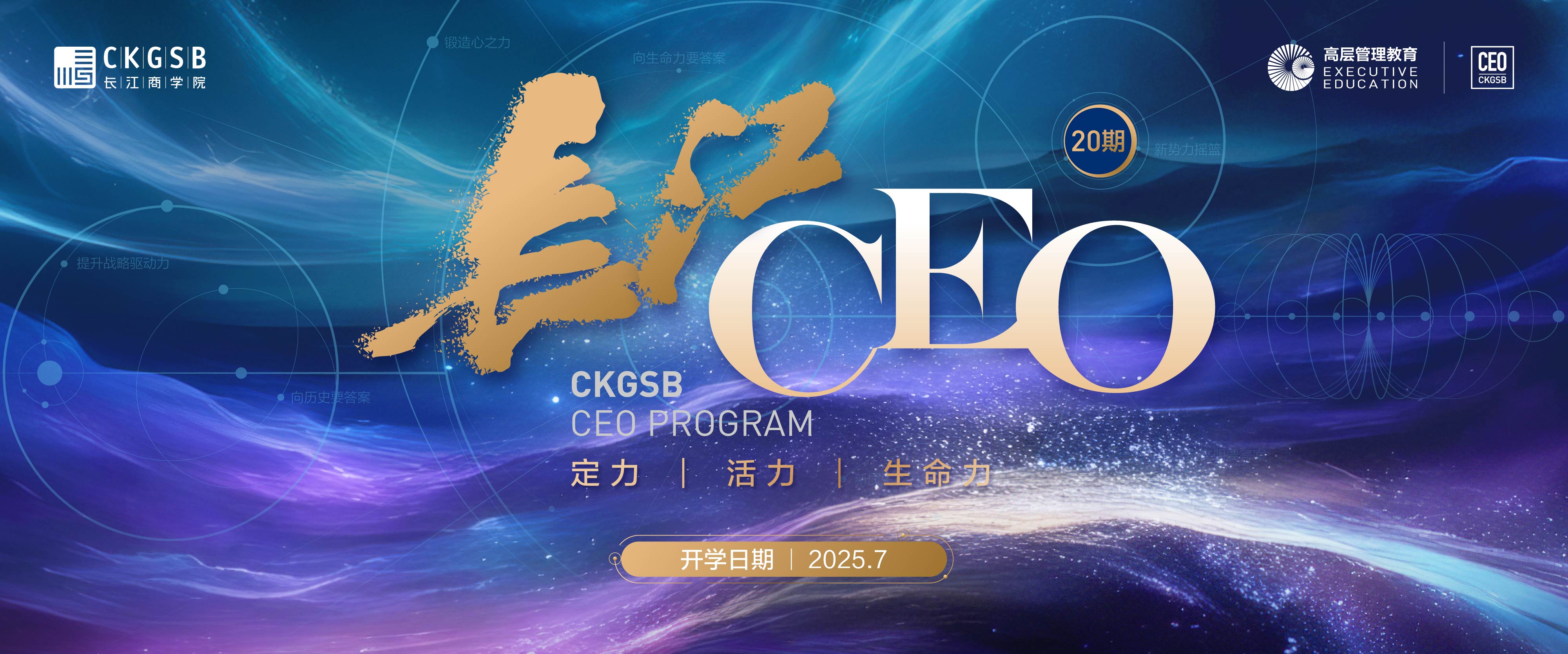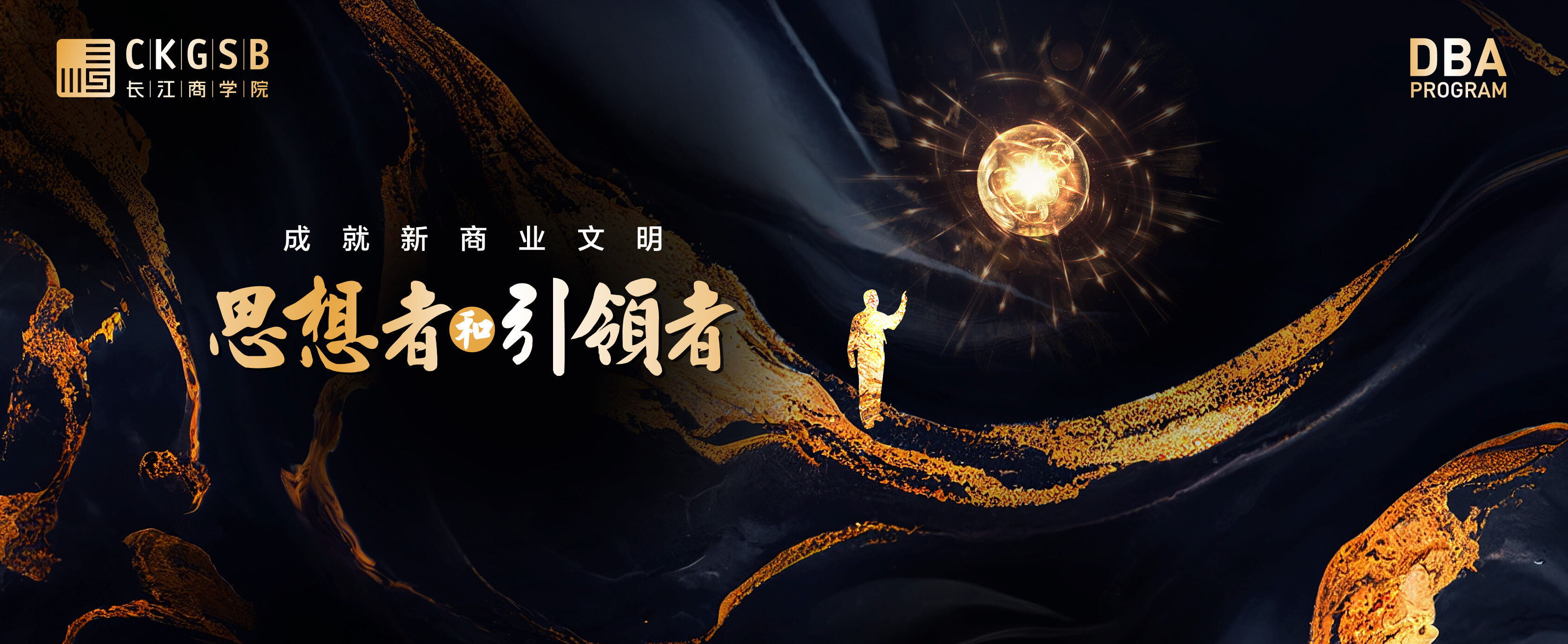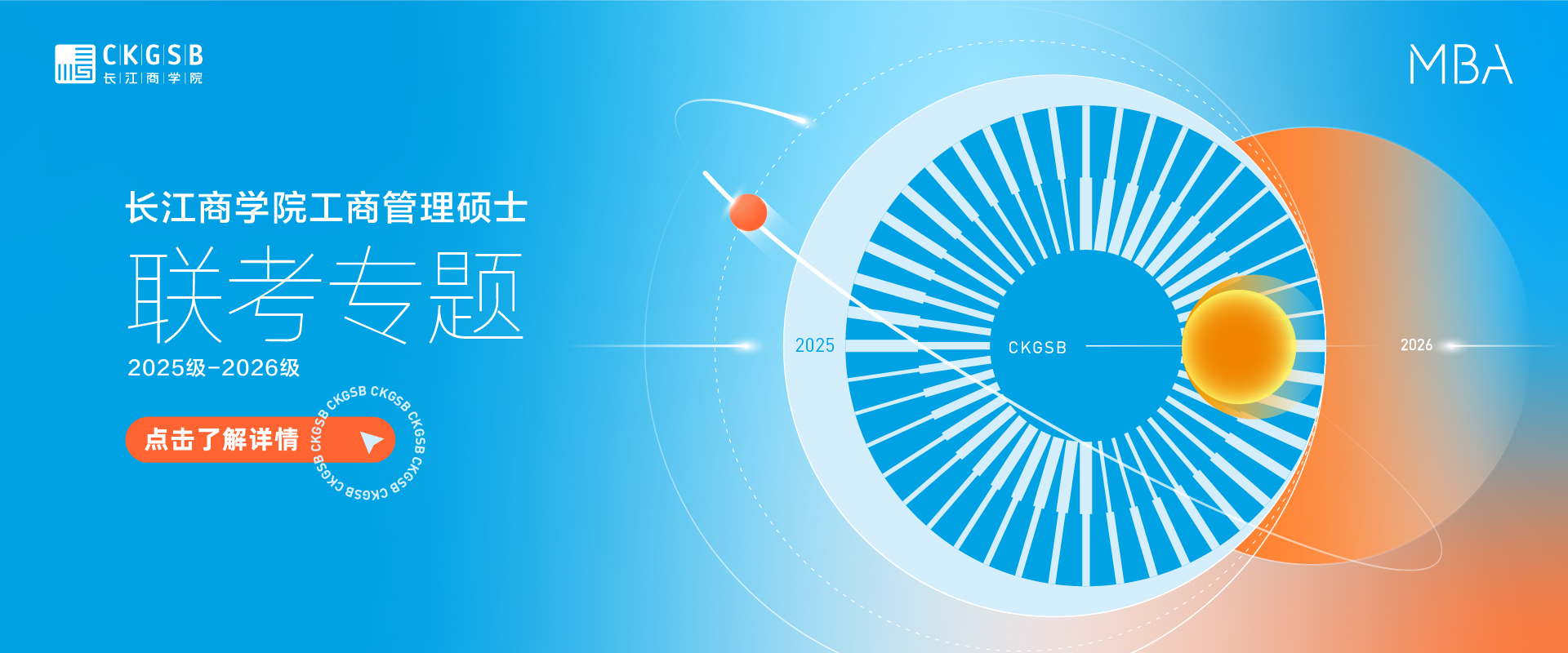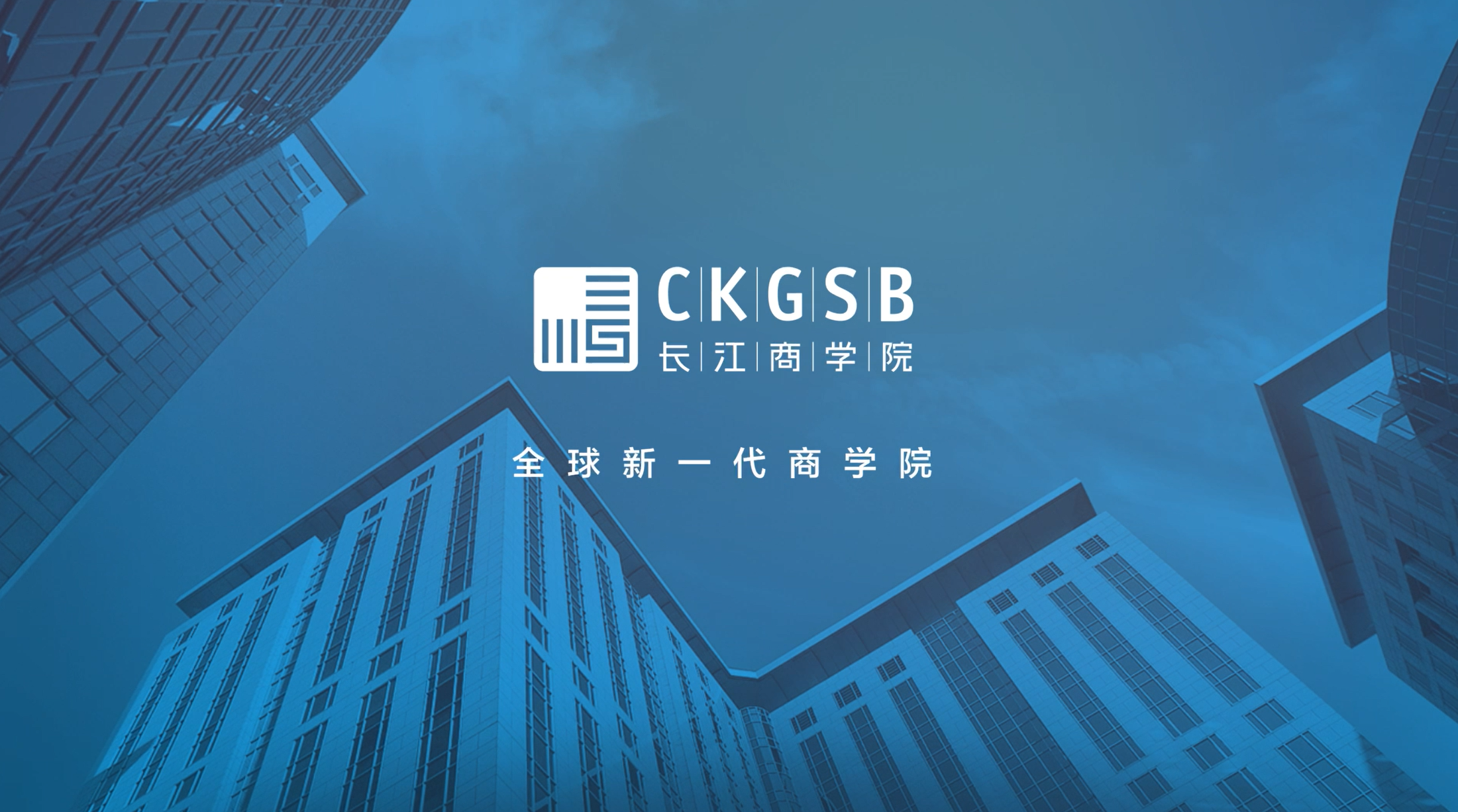- 简介
- 整合全球优质管理教育资源,打造全方位的学习体验, 围绕创新、全球化和可持续发展领域的优秀商业洞察与实践, 打造企业与个人持续成长与发展的终身学习平台, 装备未来的优秀企业家与组织。
热点
2025-08-21
- 范昕宇——2025,我们该如何破“内卷”?
- 竞争,是市场经济的常态。而近期频见报端的“内卷”之殇,当下普遍理解为因恶性竞争导致没有发展的增长,形象地说,就是“越努力”越低效。
活动预告more >
-
-
- 全球南方发展论坛 | 从体育流量到经济增量
 07-29 / 09:00 - 12:00
07-29 / 09:00 - 12:00 北京
北京
-
-
-
- MM艺术品指数春拍发布会暨投资与收藏讲座
 07-16 / 15:00 - 16:30
07-16 / 15:00 - 16:30 线上
线上
-
- 新闻
- 观点
- 报道
-
- 发布时间:2025年07月29日
- 共探全球南方体育商业化创新路径 长江商学院全球南方发展论坛在京举行
-
- 发布时间:2025年07月26日
- 孙天澍教授获顶级会议最佳论文奖:数据监管重塑数据资产价值
-
- 发布时间:2025年07月23日
- 创办院长项兵教授受邀出席首届北极论坛并发表主旨演讲
-
- 发布时间:2025年07月16日
- 长江商学院发布艺术品价格指数报告
-
- 发布时间:2025年07月10日
- 8 位长江教授闪耀亚洲最大金融学术盛会 王能教授任议程委员会主席
-
- 发布时间:2025年06月26日
- 聚焦AI时代企业家向新向上 李海涛院长受邀出席2025夏季达沃斯论坛
-
- 发布时间:2025年06月24日
- 直击达沃斯长江之夜 | 聚焦AI落地,洞察全球变局
-
- 发布时间:2025年06月21日
- 孙天澍教授合作论文被国际顶刊接受,首创从人类智能评估AI的新框架
查看更多
-
- 发布时间:2025年08月21日
- 范昕宇——2025,我们该如何破“内卷”?
-
- 发布时间:2025年08月19日
- 李海涛——新格局下的企业增长“三板斧”
-
- 发布时间:2025年08月12日
- 甘洁、李学楠——韧性VS观望:中国企业家的2025“年中答卷”
-
- 发布时间:2025年08月05日
- 李伟——中国新能源汽车崛起背后的“神秘力量”
-
- 发布时间:2025年08月04日
- 李海涛——澳门第二代“赌王”吕志和家族传承启示
-
- 发布时间:2025年07月30日
- 李伟——我们还需要自由贸易吗?
-
- 发布时间:2025年07月26日
- 李洋——战争之外,看见另一个中东
-
- 发布时间:2025年07月25日
- 李伟——外卖大战的经济学观察:竞争激发市场活力,创新释放消费潜能
查看更多
查看更多














